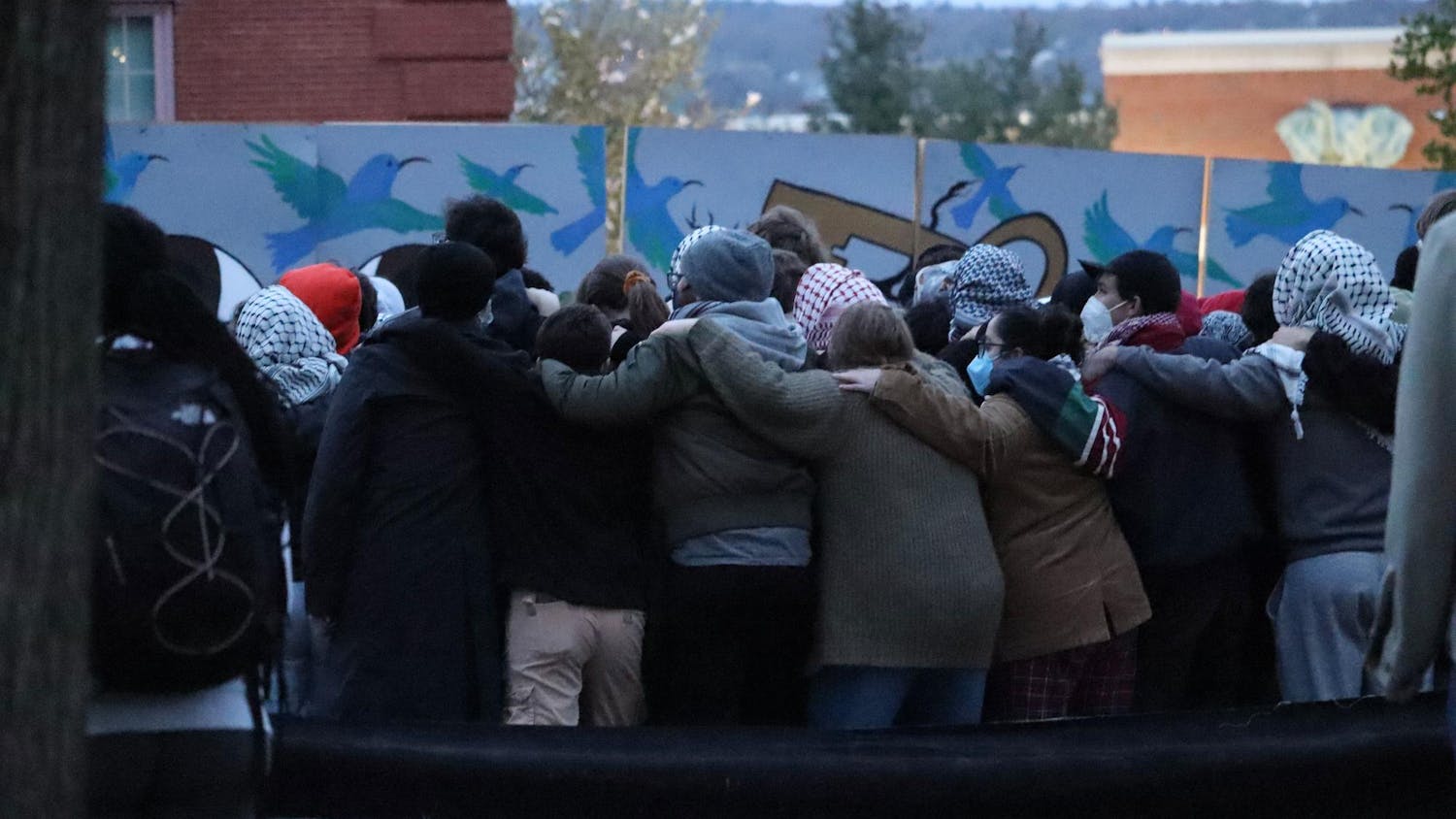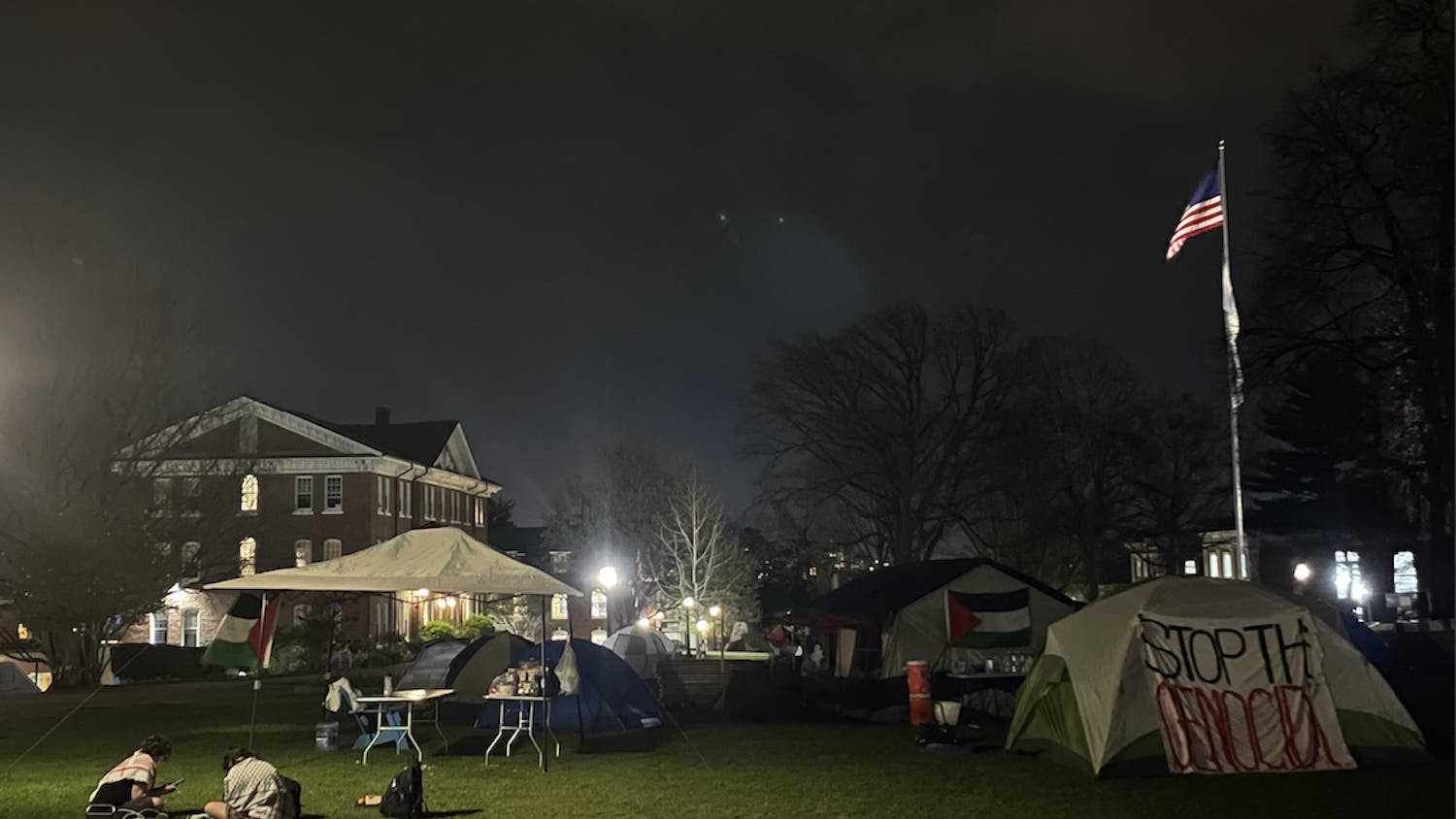Elections for the Tufts Community Union (TCU) Senate and other student government positions will begin this month as scheduled. The student organization budgeting process, however, will now continue online, according to TCU Treasurer Sharif Hamidi.
TCU Senate hopes to complete the student group budgets by the end of the semester so student groups will have access to their budgets in the fall, according to TCU President Shannon Lee.Lee, a senior, added that when reviewing the budgets, TCU Senate intends to be more flexible with their budgeting decisions due to the unusual circumstances and plans to focus on student needs for the rest of the semester.
"Completing this year’s budgeting process, and supporting students during this challenging period remain our top priorities for the time being," Hamidi, a junior, said.
TCU's Election Commission (ECOM) announced on its Facebook page that this month's elections will proceed as planned, during which undergraduates will elect the next TCU President, as well as all positions in the TCU Senate and Judiciary and Committee on Student Life (CSL).
Elections for positions in the TCU Senate and Judiciary and CSL will occur from April 15 to 16 and for TCU President from April 23 to 24.
The elections will take place over 48-hour voting windows, again through Voatz, the online voting platformcriticized earlier this year by researchers at the Massachusetts Institute of Technology (MIT) for glaring security weaknesses.
While CSL and TCU Senate and Judiciary candidates will not be able to share their goals through a candidate's forum, as in previous elections, ECOM promised that it will make other options available. For the presidential candidates, ECOM will post a recording of a question-and-answer session with the candidates to the Tufts ECOM Facebook page.
ECOM Chair Matt Zachem noted that this election cycle away from campus will be more difficult for both ECOM and candidates.
“We relied on events like tabling in the [Mayer] Campus Center and hosting a GIM to engage students about running for a seat in Student Government. Losing this face-to-face aspect of our promotion plan may make it more difficult to get students to run for available seats,” Zachem, a sophomore, wrote in an email to the Daily. “In the same vein, being on-campus was helpful to candidates’ campaigns. While they previously utilized tools like postering across campus and speaking at the Candidates Forum to promote their candidacies and inform students about their platforms, they will now only be able to use online tools to achieve the same effect.”
Lee explained that TCU Senate will no longer hold regular meetings for the remainder of the semester due to the suspension of resolutions, which require participation and community engagement that an online system would hinder.
Lee explained that TCU Senate also postponed the Students for Justice of Palestine (SJP)referendum on Tufts University Police Department’s (TUPD) training with Israeli military to the fall at her own suggestion. According to Lee, the postponement was made to ensure participation in the SJP referendum when students return to campus, since at least 900 people would need to vote in order for it to pass.
No further supplementary funding requests will be heard this semester, since the TCU Senate has transferred almost all of the student group supplementary funds, totaling $100,000, to FIRST Center’s Hardship Fund, according to Lee.Lee added that this decision was made to preserve student budgets in response to student groups’ wish to donate unused funding from their budgets to help students with financial difficulty.
To maintain funding for student groups, TCU Senate announced on its Facebook page that it moved unused funds from student organizations' budgets to a supplementary funding pool which will be accessed in the upcoming school year.The supplementary funds transferred to the FIRST Resource Center's Unexpected Hardship Fund for Student Needs are separate from student group budgets but still originate from the student activity fee, according to Lee.
Lee believes that this method of relocating TCU funding was most efficient and achieved the same goal.
“[The money] is still coming from the student activities, so students should feel … rest assured that their money was going to something that I think we all agree is important and that they cared about,” Lee said. “I don't think that there's any difference really whether or not it came from the student group budgets or our supplementary funding pool because ... [the money] would have gone to student programming anyway.”
Initially, TCU Senate transferred $50,000 to the Hardship Fund, which was quickly depleted to pay for international flights. The remaining funds contributed to storage costs, work-study payments and FIRST Center’s reserved funds for future medical costs in case of sickness, according to Lee.
In order to continue with student group activities in the fall as usual, TCU Senate has reached the limit of their donations but Lee hopes that the university can contribute more to support students.
“On my end, I've been really pushing the university to be dedicating its own resources into the FIRST Center’s Hardship Fund because at the moment, it's all been donations and TCU Senate’s budget, and I don't know if that's really right. I think the university needs to be putting its own money behind this. The problem is obviously, they're paying for a lot of other stuff like prorating housing and meal plans,” Lee said.
TCU Senate budgeting, elections to continue

Tufts Community Union Senate holds its regular meeting in the Sophia Gordon Multipurpose Room on Feb. 9.





